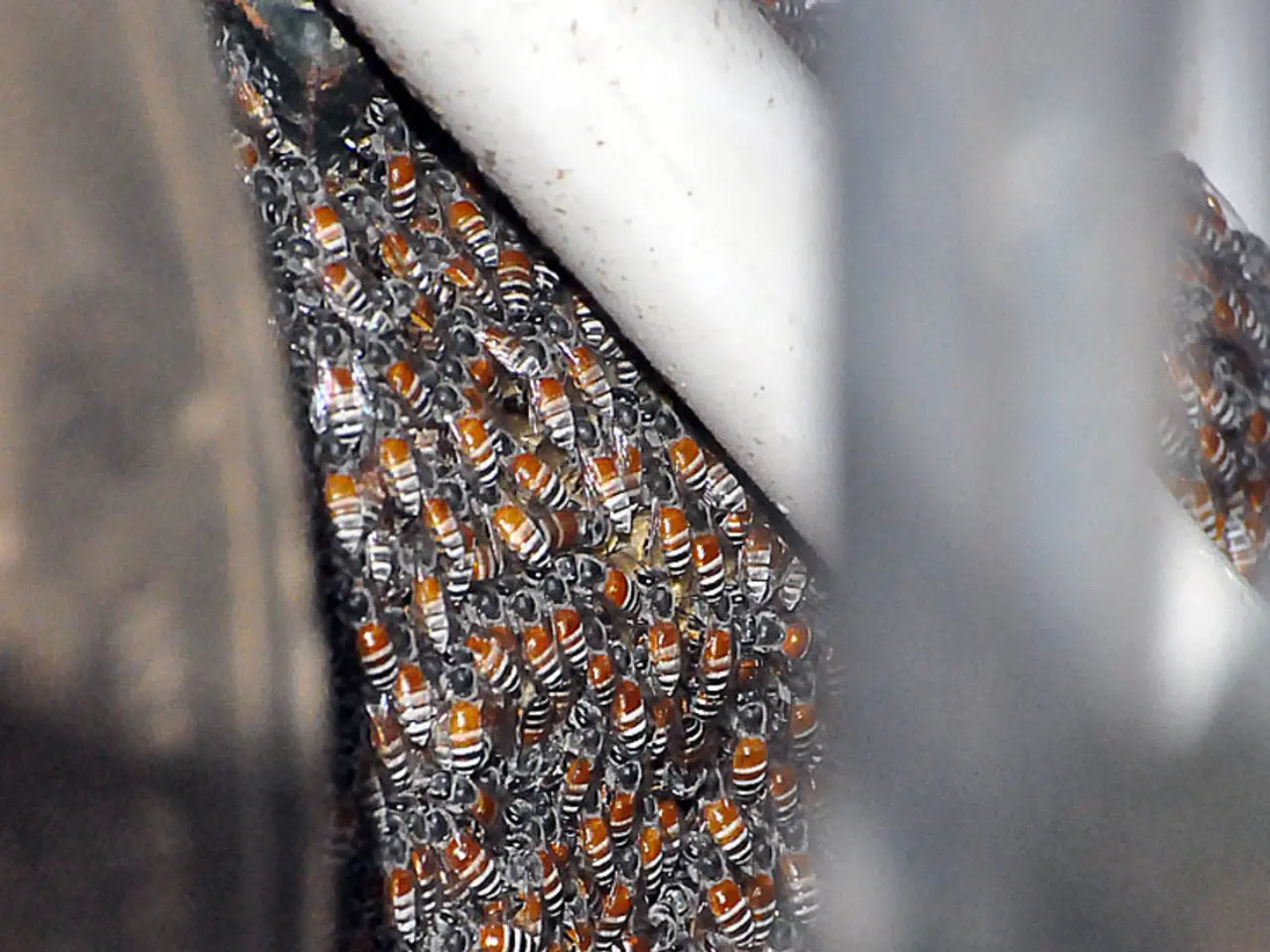Expanded Restricted Zone Due to Bee Disease - American Foulbrood Continues to Spread in Solingen
In the city of Solingen, Germany, a restricted zone has been established due to an outbreak of American Foulbrood (AFB), a notifiable disease that affects the brood of honeybees. The Bergisches Veterinary and Food Safety Office (BVLA) is urging all beekeepers, including hobbyists, to report their bee colonies if they have not already done so.
Within the restricted zone, specific regulations apply to beekeepers to manage and control the spread of the disease. Here are some general guidelines that might apply, though specific details can vary based on local laws and regulations:
## Regulations for Beekeepers in Restricted Zones
1. **Inspections and Monitoring**: Regular inspections by local beekeeping associations or veterinary authorities might be mandatory to monitor the health of bee colonies. Beekeepers are often required to report any signs of AFB to the authorities.
2. **Treatment and Control Measures**: If AFB is detected, colonies may need to be destroyed to prevent the spread of the disease. This can be a mandatory measure enforced by local regulations. In some cases, treatment with antibiotics or other approved methods might be permissible under strict supervision.
3. **Restrictions on Colony Movement**: Moving bee colonies into or out of the restricted area might be prohibited to prevent the spread of the disease. Beekeepers may need special permits or approval from local authorities for any movement of bees.
4. **Best Practices and Hygiene**: Beekeepers are encouraged to follow strict hygiene practices, including proper cleaning and maintenance of equipment to prevent cross-contamination. Shared equipment use may be discouraged or strictly regulated.
5. **Education and Training**: Local authorities might provide or require beekeepers to participate in educational programs focused on AFB identification, management, and control.
6. **Record Keeping**: Beekeepers may be required to maintain detailed records of their colonies, including health inspections and any treatments applied.
For precise details specific to Solingen, it would be beneficial to consult local beekeeping associations or the relevant veterinary or agricultural authorities in the region. They can provide the most accurate and up-to-date information on regulations and requirements for beekeepers within the affected area.
Affected beekeepers will receive veterinary support from the BVLA. It is crucial to combat the spread of AFB consistently to prevent further spread. However, honey can be consumed without concern, as AFB only affects the brood of honeybees and does not pose a health risk to humans.
The BVLA can be contacted via email or phone at 0212 / 290 - 0 for any questions related to AFB and its containment measures. An exact map of the restricted zone can be found on the city's website at https://www.solingen.de. The restricted zone covers parts of Wald, Gräfrath, Mitte, Höhscheid, Ohligs, and Aufderhöhe. The zone has now been expanded due to the disease's spread to additional colonies. In case of damage, affected beekeepers may receive compensation.
- In the management of the AFB outbreak, environmental-science principles might be applied to monitor the impact of the disease on the ecosystem and assess potential environmental risks.
- To ensure the overall health-and-wellness of individuals, as well as maintain a balanced environment, it is essential for beekeepers in the restricted zone to adhere to science-based practices, including the prevention and control measures outlined for AFB.




